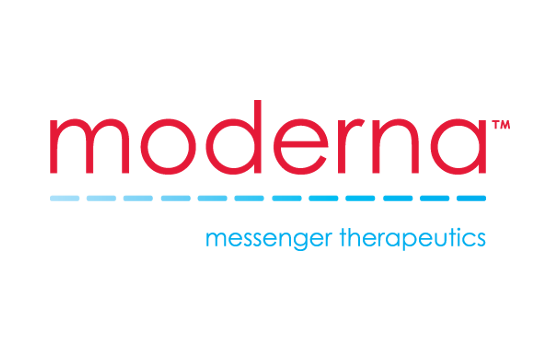 Moderna, Inc. (Nasdaq: MRNA), a biotechnology company pioneering messenger RNA (mRNA) therapeutics and vaccines, today announced that the European Commission purchased an additional 150 million doses of the COVID-19 Vaccine Moderna, which are scheduled to be delivered in the third and fourth quarter of 2021. This brings its confirmed order commitment to 310 million doses for delivery in 2021.
Moderna, Inc. (Nasdaq: MRNA), a biotechnology company pioneering messenger RNA (mRNA) therapeutics and vaccines, today announced that the European Commission purchased an additional 150 million doses of the COVID-19 Vaccine Moderna, which are scheduled to be delivered in the third and fourth quarter of 2021. This brings its confirmed order commitment to 310 million doses for delivery in 2021.
Under the terms of the agreement, the European Commission has the option to purchase an additional 150 million doses to be delivered in 2022.
"We appreciate the European Commission's confidence in Moderna and our mRNA platform. Today's purchase of an additional 150 million doses brings their total order of our COVID-19 vaccine to 310 million for delivery in 2021," said Stéphane Bancel, Chief Executive Officer of Moderna. "The European Commission is in discussions with us on how to prepare for 2022, including addressing potential variants, and the Commission has an option for an additional 150 million doses for delivery in 2022. Moderna is committed to working relentlessly to bring to market vaccine boosts with the relevant variants to address this global pandemic."
The European Commission granted a conditional marketing authorization (CMA) for COVID-19 Vaccine Moderna, based upon the recommendation of the European Medicines Agency (EMA) for use of the COVID-19 Vaccine Moderna for active immunization to prevent COVID-19 caused by SARS-CoV-2 virus in individuals 18 years of age and older. Deliveries of COVID-19 Vaccine Moderna to European countries have to date come from Moderna's dedicated non-U.S. supply chain.
About the COVID-19 Vaccine Moderna
The COVID-19 Vaccine Moderna (referred to in the U.S. as the Moderna COVID-19 Vaccine) is an mRNA vaccine against COVID-19 encoding for a prefusion stabilized form of the Spike (S) protein, which was co-developed by Moderna and investigators from the U.S. National Institute of Allergy and Infectious Disease's (NIAID) Vaccine Research Center. The first clinical batch, which was funded by the Coalition for Epidemic Preparedness Innovations, was completed on February 7, 2020 and underwent analytical testing; it was shipped to the U.S. National Institutes of Health (NIH) on February 24, 2020, 42 days from sequence selection. The first participant in the NIAID-led Phase 1 study of the Moderna COVID-19 Vaccine was dosed on March 16, 2020, 63 days from sequence selection to Phase 1 study dosing. On May 12, 2020, the U.S Food and Drug Administration granted the Moderna COVID-19 Vaccine Fast Track designation. On May 29, 2020, the first participants in each age cohort: adults ages 18-55 years (n=300) and older adults ages 55 years and above (n=300) were dosed in the Phase 2 study of the vaccine. On July 8, 2020, the Phase 2 study completed enrolment.Results from the second interim analysis of the NIH-led Phase 1 study of the Moderna COVID-19 Vaccine in the 56-70 and 71+ age groups were published on September 29 in The New England Journal of Medicine. On July 28, results from a non-human primate preclinical viral challenge study evaluating the vaccine were published in The New England Journal of Medicine. On July 14, an interim analysis of the original cohorts in the NIH-led Phase 1 study of the vaccine was published in The New England Journal of Medicine. On November 30, Moderna announced the primary efficacy analysis of the Phase 3 study of the vaccine conducted on 196 cases. On November 30, the Company also announced that it filed for Emergency Use Authorization with the U.S. FDA and a Conditional Marketing Authorization (CMA) application with the European Medicines Agency. On December 3, a letter to the editor was published in The New England Journal of Medicine reporting that participants in the Phase 1 study of the Moderna COVID-19 Vaccine retained high levels of neutralizing antibodies through 119 days following first vaccination (90 days following second vaccination). On December 18, 2020, the U.S. FDA authorized the emergency use of the Moderna COVID-19 Vaccine in individuals 18 years of age or older. Moderna has also received authorization for its COVID-19 vaccine from health agencies in Canada, Israel, the European Union, the United Kingdom, Switzerland, Singapore and Qatar. Additional authorizations are currently under review in other countries and by the World Health Organization.
Authorized Use
The COVID-19 Vaccine Moderna has been granted a Conditional Marketing Authorization by the European Commission, based upon the recommendation of the European Medicines Agency, which authorizes the COVID-19 Vaccine Moderna for active immunization to prevent COVID-19 caused by SARS-CoV-2 virus in individuals 18 years of age and older.
About Moderna
Moderna is advancing messenger RNA (mRNA) science to create a new class of transformative medicines for patients. mRNA medicines are designed to direct the body's cells to produce intracellular, membrane or secreted proteins that can have a therapeutic or preventive benefit and have the potential to address a broad spectrum of diseases. The company's platform builds on continuous advances in basic and applied mRNA science, delivery technology and manufacturing, providing Moderna the capability to pursue in parallel a robust pipeline of new development candidates. Moderna is developing therapeutics and vaccines for infectious diseases, immuno-oncology, rare diseases, cardiovascular diseases, and autoimmune and inflammatory diseases, independently and with strategic collaborators.Headquartered in Cambridge, Mass., Moderna currently has strategic alliances for development programs with AstraZeneca PLC and Merck & Co., Inc., as well as the Defense Advanced Research Projects Agency (DARPA), an agency of the U.S. Department of Defense, and BARDA. Moderna has been named a top biopharmaceutical employer by Science for the past six years.